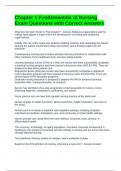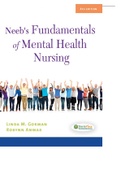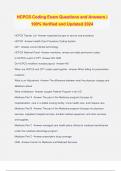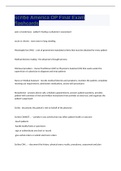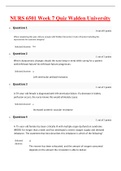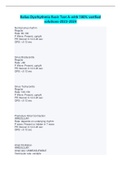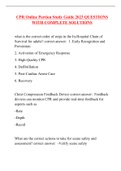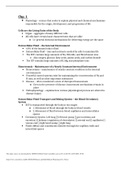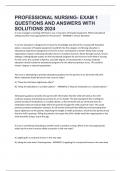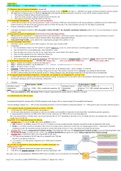Exam (elaborations)
Chapter 1 Fundamentals of Nursing Exam Questions with Correct Answers
- Course
- Institution
What Are the Main Points in This Chapter? - Answer-Religious organizations and the military have played a major role in the development of nursing and healthcare organizations. Initially, the role of the nurse was limited to bathing, feeding, and supporting the patient; keeping the patient envir...
[Show more]
